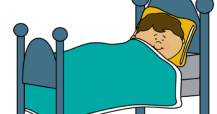preventing baby bottle tooth decay
 Explore essential tips for preventing baby bottle tooth decay. Learn how to protect your child's oral health and promote a cavity-free smile from an early age.
Explore essential tips for preventing baby bottle tooth decay. Learn how to protect your child's oral health and promote a cavity-free smile from an early age.
Baby bottle tooth decay is preventable. Here are some simple steps to put you on the path towards healthy teeth:
- Avoid kissing your child on the mouth or tasting his food before offering the food to him. This will prevent the transfer of decay causing bacteria from the mother to the child’s mouth.
- Whether you choose to breastfeed or bottle-feed, it is important to take good care of your baby’s teeth.
- Birth to 12 months: Keep your baby’s mouth clean by gently wiping the gums with a clean baby washcloth. Once you see the first teeth, gently brush using a soft damp baby toothbrush.
- 12 to 36 months: Brush your child’s teeth 2 times per day for 2 minutes. Use a smear (rice grain size) of fluoride toothpaste until your child’s third birthday. Brush the teeth with a pea-sized amount of fluoride toothpaste from the ages of 3 to 6.
- Avoid feeding your child while he is watching television. Children tend to pouch the food and keep it in the oral cavity for a prolonged time increasing chances of decay.
- Never fill bottles with sugared milkand soft drinks. Bottles are for plain milk, water and formula alone.
- Never allow your child to fall asleep with a bottlecontaining anything but water.This not only exposes your child’s teeth to sugars but can also put your child at risk for ear infections and choking.
- Never give your child a pacifier/teether dipped in anything sweet like honey.
- Teach your child to drink from a regular cup as soon as possible, preferably by 12 to 15 months of age. Drinking from a cup is less likely to cause liquid to collect around the teeth and cannot be taken to bed.
- Limit the amount of sweet or sticky foods your child eats, such as candy, gummies, cookies, cakes and toffees. They should be eaten only at mealtime and never as an in between meal snack.
- Serve juice only during meals or not at all. Never give juice to babies younger than 6 months. If juice is given to babies between 6 to 12 months, it should be limited and diluted with water (half water, half juice). Try to give whole fruit whenever possible.
- Make sure your child is getting enough fluoride, which helps lessen cavities. Fluoride can be supplemented at home by means of a fluoride tooth paste or at the dentist’s office by application of a fluoride varnish.
- Ask your dentist about sealants, which can help prevent tooth decay in back teeth.When your child’s first tooth appears, talk to your dentist about scheduling the first dental visit. Remember the best time to see a dentist is before the first birthday. Treat the first dental visit as you would a well-baby checkup with the child’s physician. Remember: starting early is the key to a lifetime of good dental health.



